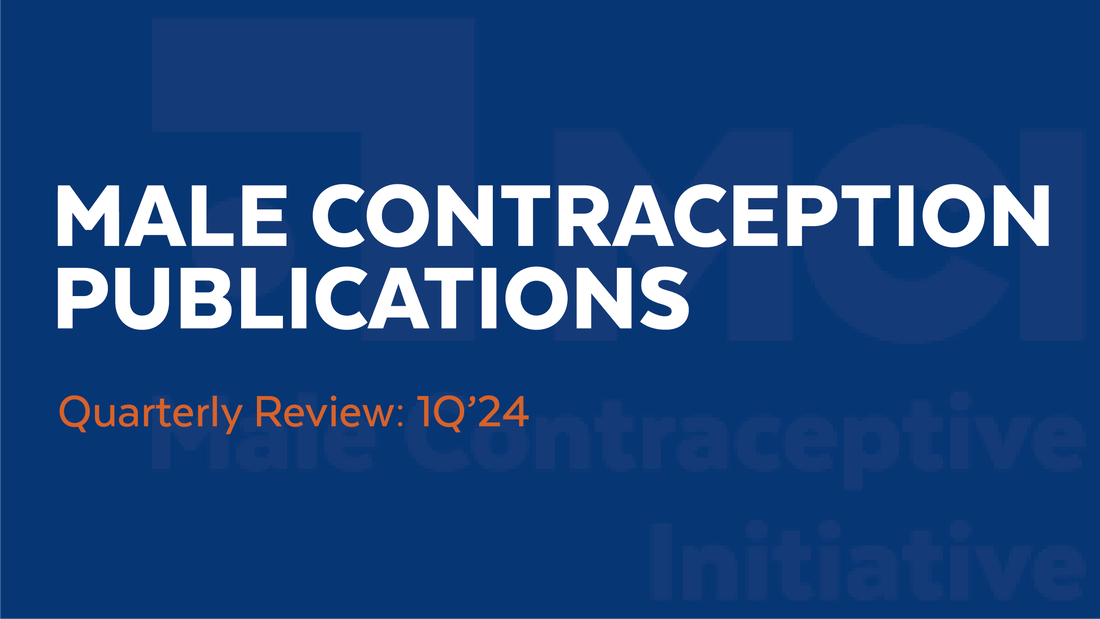|
This blog series highlights pertinent publications that were featured in MCI's monthly newsletter editions in the first quarter of 2024. The purpose of this blog is to report interesting or relevant work from MCI Fellows, Grantees, staff members, and other community authors in the field of male contraception. The 2023 Family Planning Market Report provides insights into the public-sector contraceptive market across low- and lower-middle income countries from 2018 to 2022. This report, published by the Reproductive Health Supplies Coalition (RHSC) and Clinton Health Access Initiative (CHAI) features data from 17 suppliers and provides enhanced visibility into public sector contraceptive procurement. Despite well over half a century of effort in developing male contraceptives, there are no approved male contraceptive drugs on the market. This review from MCI staff aims to present strategies for progress in non-hormonal male contraception based on lessons learned from history, with the hope of expediting development and bringing a male contraceptive drug closer to reality. This recent review provides an up-to-date perspective of male contraceptives, discussing condoms, vasectomies, and methods in development. The Sperm Maturation Database (SperMD, http://bio-add.org/SperMD) is a repository that provides comprehensive information on sperm maturation, illustrating the transcriptomic, proteomic, and metabolomic profiles of sperm across different cell types. This database can be used to evaluate potential male contraceptive targets and establish risk factors for reversibility and other criteria. This new paper from a group in Dundee, Scotland, describes a new library of 83 chemical compounds that have been reported to affect sperm function, which they are calling “The Sperm Toolbox”. While many of these compounds have been described before, this is the first time their major effects have all been tested in a standardized, complete, and comparable way, and the results confirm some earlier studies and contradict others. This kind of centralization and replication is important for advancing the field of sperm biology and unisex contraceptive development! This paper, from the lab of MCI Grantee Dr. Thomas Garcia, continues work on the epididymis-specific protein Ovch2, which is required for male fertility. This study deleted a section of the protein called the CUB domain, and assessed the impact on mouse fertility. Although this change decreased sperm motility, it didn’t prevent mice from successfully breeding, which suggests that future drug development efforts targeting OVCH2 should focus on the separate protease domain of the protein. Are there any interesting publications about non-hormonal, reversible male contraception that you'd like to see featured? Please reach out to us and share your thoughts!
0 Comments
Your comment will be posted after it is approved.
Leave a Reply. |
Categories
All
Archives
June 2024
|
|
|
Donate to Male Contraceptive InitiativeYour generous donation makes a difference!
|
© Male Contraceptive Initiative. All rights reserved.





 RSS Feed
RSS Feed
